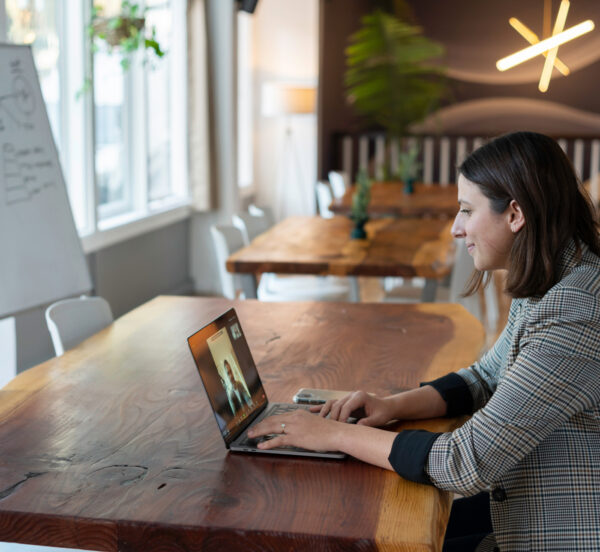So, you’ve wooed the employer with a cracking CV, or a fantastic application form – great! Give yourself a well-deserved pat on the back!
Now, let’s talk about the interview:
What will you wear? Can you use your notes? These are all things you need to think about in advance whether you are attending the interview in-person or online.
A work coach from Jobcentre Plus shares their favourite tips for that all important interview:
Plan your journey
Interviews should be taking place on the phone or online wherever possible (check out these tips on the Guardian website), but in some exceptional cases you may need to travel. When planning your journey, always leave extra time to allow for any unexpected delays. It’s also a good idea to have the interviewer’s contact number with you, just in case you need to call them.
Clothes
Think smart, clean and professional, which means no jeans, no track suits and no trainers. It’s also advisable to keep jewellery and perfume minimal too. You want to be remembered for the right reasons.
Forms
It’s always a good idea to take a spare CV and application form with you. An interviewer may refer to your CV or application form and ask you more about it – they will expect you to have a copy to hand. This shows you’re prepared and have put a lot of thought and effort into the interview.
Don’t forget to take any other documents the employer may have asked you to bring with you, such as your passport or National Insurance Number.
Notes, glorious notes!
Make them, revise them, and use them. Once you have been invited to interview, you should spend some time researching the company. Going into an interview with a good knowledge of the company gives you confidence, and tells the employer that you are serious and passionate about a career with them. It will help you make your interview answers more relevant to the employer and should give you something appropriate to ask them at the end. Pay particular attention to the company’s history, what they do, any particular achievements they’re proud of, any current news or campaigns, and who their competitors are (if relevant). It’s best to make a short bulleted list that you can quickly glance at if you get stuck, rather than pages of scribbles!
While we’re talking about interview questions, why not try to find out what they’re likely to ask you? A quick internet search can bring up forums and discussion boards relating to other people’s interview experiences with the company. Getting an idea of what could be asked can help calm those pre-interview nerves.
Practice makes perfect
Rehearse your answers to common interview questions or try a mock interview with a family member. This will prevent you from drawing a blank mid-interview. If you do find yourself a bit stuck for words, say something like “that’s a really interesting question, may I take a moment to think about that?”. This will give you some time to calm yourself and think about the answer.
The National Careers Service website has a list of the top ten interview questions here.
Be yourself
Once you’ve done all this preparation just remember to be polite, friendly, smile and be yourself!
Good luck!
If you want further help with interviews, LifeSkills, created with Barclays, has a module covering the purpose of job interviews and the process of preparing for one. Visit the LifeSkills website to find out more.
Got yourself a job interview but not sure how to prepare? Ola, a Jobcentre Plus Work Coach, gives you his top tips to help you be at your interview best.





